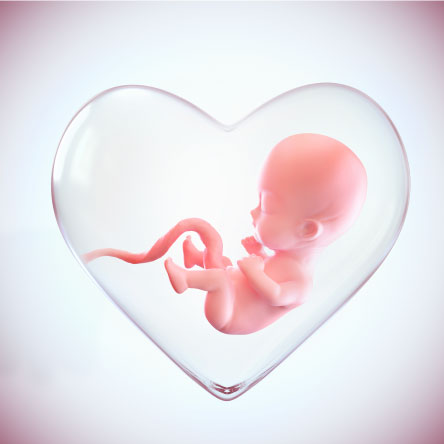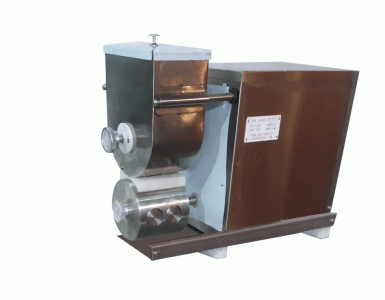Pregnant women are strongly encouraged to adopt a healthy lifestyle and avoid foods or activities that may harm the developing fetus. This includes adhering to a balanced, nutritious diet, avoiding excessive alcohol intake, and, certainly, refraining from smoking or using recreational drugs.
These guidelines, which are based on years of research, are easily understood. Everyone agrees that exposing a fetus to harmful substances is immoral and improper. However, there are cases that are not so clear-cut. For example, if a pregnant woman suffers with a disease and needs nonsteroidal anti-inflammatory drugs or prescription opioids to relieve the pain, but the medication may harm the fetus[1], is she permitted to take them?
We stress that we are not referring to medications that are intended to cure her disease. Those would require a separate discussion. In fact, it is far simpler from a Halachic standpoint to permit her to take them. We refer only to analgesics that may increase the risk of a miscarriage or congenital defects.
We will make several introductory points:
- If a fetus is in danger, there is an obligation to save it just like a child that is already born, including Chilul Shabbos if necessary. Though the Rishonim assert that the Pasuk “v’Chai Bahem”, which is the source for desecrating Shabbos for Pikuach Nefesh, does not apply to a fetus, there is another basis for the rule that one may desecrate Shabbos to save lives, namely, “desecrate one Shabbos for him so that he can observe many more Shabbosos”, which does apply to a fetus.
- Feticide is a grave sin. Some say it is an Isur d’Oraisa, while others say it is an Isur d’Rabbanan. We have discussed this in several other essays.[2]
- The consensus of the Poskim is that in a situation of Pikuach Nefesh a person is obligated to spend all of his money to save a human life (if there is no other way to do so). See Sanhedrin 73a and Minchas Asher Bereishis (new version, 58). In fact, some Rishonim hold that a person is obligated to risk his life in order to save others. This is an important discussion among the Poskim (see Choshen Mishpat 426).
In view of the above, the Halacha in our case seems clear. If the fetus’ life will be endangered by the mother’s use of these medications, she should surely be forbidden to take them and must tolerate the pain.
However, Rav Elyashiv zt”l adduced proof that this assumption is incorrect from the following Gemara (Arachin 7a):
[If] a woman [is] being taken out to be executed, we do not wait until she gives birth.
In other words, if a pregnant woman is sentenced to death by Beis Din, we do not wait until she gives birth before carrying out the ruling.
The Rishonim discuss the case to which the Gemara refers and the reason for this Halacha. One of the critical factors is whether a fetus is considered a “limb” of its mother (given that its life is completely dependent on her) or a separate entity. In Talmudic terms, “Ubar Yerech Imo” or “Ubar Lav Yerech Imo”?
The Ran (Chulin 58a, 19 miDafei haRif) cites Rishonim who hold that the aforementioned Gemara is proof that “Ubar Yerech Imo”. If the fetus is considered a distinct and independent entity, we should surely be obligated to wait until delivery before executing the mother (and causing the death of the fetus), for the death sentence applies to the mother only.
However, the Ran (citing Rabbenu Tam) maintains that the opposite is true. If the fetus was considered a limb of the mother, why don’t we execute it independently if it is born before the mother’s execution? We must say that the fetus is not considered a limb of the mother and thus the death sentence does not apply to it. (Many question the Ran’s argument. Once the fetus is born, it surely assumes a new identity and is therefore not executed. Further discussion of this point is beyond the scope of this essay.)
If the fetus is not considered Yerech Imo, why do we not wait until after birth to execute the mother? The Ran answers:
Rather, since she is liable to the death penalty, we do not delay her sentence. With regard to the fetus – since it has not been born, we are not concerned [about it].
In other words, although the fetus is not subject to the mother’s death sentence, since delaying the execution until after delivery would cause distress to the mother, we execute her immediately. Though this perforce results in the death of the fetus, we are unconcerned as it does not have the full status of a living child.
This appears to be a clear proof that one may alleviate a pregnant woman’s distress even at the expense of the life of her fetus. Rav Elyashiv argued that the same would apply in our case; a pregnant woman may take painkillers even at the risk of harming her fetus.
Clearly, this needs further clarification. We have stated that a person is obligated to spend all of his money to save the life of another, and perhaps even risk his own life to do so. We do not apply the rule “Chayecha Kodmin” – “Your life takes precedence”[3] to risk the life of another purely to save oneself from non-life-threatening distress.[4] Why then do we permit a mother to take a painkiller that might jeopardize her fetus?
One could argue that taking a painkiller is an act of Refua, and that this causes harm to the fetus only indirectly and is thus permissible. This is reminiscent of the Chazon Ish’s famous ruling (Y.D. 69) regarding a person who has to choose between shooting an arrow towards a group of people or towards a single person. He may not choose to shoot it towards the single person in order to save the larger number of people in the group, as “we do not override one life on account of another”. However, if an arrow has already been shot towards a group of people one may redirect it towards a single individual. This is because the arrow has already been shot and the act of redirecting it is classed as an “act of rescue” of the members of the group and the death of the individual is an indirect consequence.
However, this argument, while applicable to the case of a pregnant woman taking painkillers, does not apply in the case of the Gemara in which a pregnant woman is to be executed. The execution cannot be defined as “an act to prevent the women’s distress with the death of the fetus as an indirect consequence”. Rather, it is an act that puts the woman and her fetus to death. It is thus not at all comparable to the act of redirecting an arrow away from a group of people or of taking a painkiller.
If so, we need a different explanation of this extraordinary ruling.
Perhaps we may suggest that since the fetus’s life is entirely dependent on the mother’s (whether it is considered Halachically to be “one of her limbs” or not) and it is she who grants it life at all times, it is her right to give precedence to her quality of life over the fetus. The fetus only has the right to life as an extension of its mother (regardless of whether he is considered Yerech Imo or not). If the mother wishes to undergo treatment to relieve pain, the fetus does not have independent status that would stand in way, even if the treatment of its mother has the potential to negatively impact it.
If so, the act of taking the painkillers cannot be defined as an act of harming the fetus but not because it is an act of Refua, rather, because the fetus is absolutely and entirely dependent on its mother. If the fetus will suffer harm in the course of the mother’s routine medical treatment, there is no basis to considering it an act of direct fetal harm.
In the case of a nursing mother, the Shulchan Aruch rules (E.H. 80:12)[5]:
If a budget [was set] for food that is appropriate for her and she wants to eat more or other foods, some say that the husband cannot prevent her [from doing so] due to the danger to the child because her distress takes precedence. But some say that he can prevent her.
The Chelkas Mechokek[6] is astonished at the first view that the husband cannot prevent the woman from eating things that would endanger her child (ibid. 22):
If there is a possibility of danger to the child and the woman is in no danger – only distress – how could it enter one’s mind to say that due to her distress we should endanger the child?!
The Beis Shmuel[7] suggests an answer (ibid. 15):
Perhaps we can say that although the child will possibly be endangered it is still permissible for her to eat. It is akin to the Gemara in Nedarim 80, “their laundry and other peoples’ lives – their laundry takes precedence” though it is only a matter of distress. However, it is only R’ Yosi who holds as such – the Rabbanan dispute it and hold that the lives of others takes precedence. On what basis, then, did the Rambam rule like R’ Yosi?
To summarize: The Chelkas Mechokek asks how it is permissible for a nursing woman to eat food that harm her milk supply and endanger her child, given that refraining from eating will only cause her distress but will not endanger her life. The Beis Shmuel responds that it may be based on the ruling of a Gemara in Nedarim (though he concedes that it is only the opinion of R’ Yosi, not the Chachamim), which indicates that although a person is obligated to spend all his money to save another person’s life, he is not obligated to suffer significant discomfort to do so.
We should point out that the Chelkas Mechokek and Beis Shmuel were discussing a nursing woman, not a pregnant one. A nursing woman essentially “saves the life” of her child by nursing it, and the question is whether altering her diet in a way that prevents her from nursing it violates the Isur of “Lo Sa’amod Al Dam Rei’echa”. This is the basis for the Machlokes between the Chelkas Mechokek and Beis Shmuel. But this bears little relevance to our case where the act of taking the pain killers may cause harm to the fetus – and not merely prevent the mother from “saving” it. Moreover, the Halacha is that a person is certainly obligated to tolerate serious discomfort to save somebody’s life (there are other interpretations of R’ Yosi’s position in Nedarim that are beyond the scope of this essay).
The positions that we have outlined above are also relevant to another important question, namely, may a pregnant woman undergo treatment for a non-life-threatening illness that will cause her to abort her fetus? There is well-documented contradiction in the Maharit[8] in this regard. In Teshuva 97 he forbids it, but in Teshuva 99 he appears to permit it. Rav Moshe Feinstein famously opined that Teshuva 99 is a forgery and that the Halacha follows Teshuva 97.[9] However, others suggested a resolution to the contradiction. Rav Elyashiv held that the Halacha follows Teshuva 99, for the reasons stated above, namely, that since the fetus’ life stems entirely from the mother, she isn’t obligated to continue to grant it life at the expense of her long-term health.
There is a great deal more to discuss in this topic – we hope to return to it in a future essay.
[1] [Editor’s note: See Interrante JD, Ailes EC, Lind JN, et al. Risk comparison for prenatal use of analgesics and selected birth defects, National Birth Defects Prevention Study 1997-2011. Annals of Epidemiology 27:10 (2017), 645-653.e2.]
[2] See Shemos 5780, Noach 5781, and Tazria-Metzora 5781
[3] See Bava Metzia 62a
[4] See below where we discuss the argument of the Beis Shmuel.
[5] [Editor’s note: See also Rambam Hilchos Ishus 21:11.]
[6] R’ Moshe b. Yitzchak Yehuda Lima (c. 1615-c. 1670), Chief Rabbi of Vilna. The Chelkas Mechokek was published posthumously by his son in 1670.
[7] R’ Shmuel b. Uri Shraga Feibusch (d. 1706), Rav of Shidlov (Szydłów), Poland
[8] R’ Yosef di Trani (1568–1639) of Constantinople
[9] See Igros Moshe C.M. Vol. 2 Teshuva 69,3













